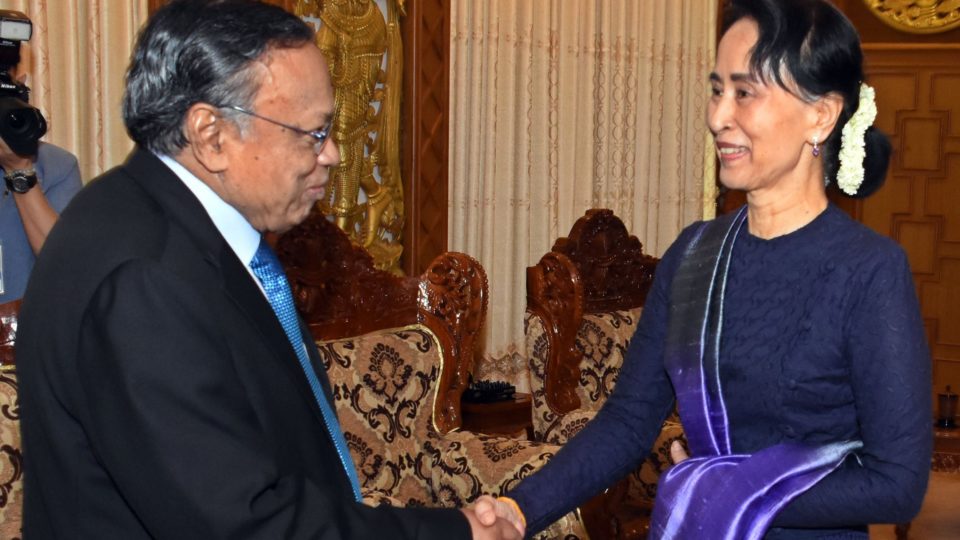Myanmar and Bangladesh inked an agreement yesterday to begin repatriating Rohingya refugees from squalid Bangladeshi camps back to their homes in Rakhine State in two months. The office of State Counsellor Aung San Suu Kyi said the move was a “win-win situation for both countries,” but critics say it does nothing to ensure the safety of Rohingya refugees.
“[More than] 620,000 Rohingya refugees have only just escaped one of the most brutal cases of mass persecution in recent times,” said Bill Frelick, refugee rights director at Human Rights Watch (HRW). “The idea that Burma will now welcome them back to their smoldering villages with open arms is laughable.”
Rosa Freedman, a professor of law, conflict and global development at the University of Reading, echoed that sentiment today in an opinion piece for The Conversation. She writes: “The Myanmar government has no interest in welcoming Rohingya refugees home with open arms; those Rohingya who remain in Myanmar are treated as an alien people, denied citizenship and basic rights, and systematically persecuted.”
A report released on Tuesday by Amnesty International presented evidence that the Rohingya have been subject to a system of apartheid for years leading up to the mass displacement that began last August. This system has barred them from receiving healthcare and education and has severely restricted their freedom of movement and access to livelihoods.
“Dismantling this system of apartheid is essential to ensure the dignified return of the hundreds of thousands of Rohingya who have fled death, destruction, and poverty in Myanmar,” the report reads.
In addition to criticizing Myanmar’s lack of commitment to the safety of Rohingya refugees, the critics have also come after Bangladesh for playing along. Bangladesh has won international praise for giving refuge to over a million Rohingya refugees over the last four decades, but it has never offered them asylum.
“Given that Myanmar is refusing to take responsibility for the atrocities, let alone to provide guarantees of protection and justice for the Rohingya, it beggars belief not just that the country is asking those refugees to return, but that Bangladesh would provide its support,” Freedman writes. “Rohingya refugees’ options are bleak: remain in the squalid camps, somehow escape into Bangladeshi society with no formal documentation or status, or return home and face persecution. Bangladesh should step up and provide refuge to those who have been seeking it for 25 years.”
Many Rohingya have expresses a reluctance to return to Myanmar based on the belief that they will be confined to camps. The UN and the US Department of State have asked Myanmar for guarantees that refugees will be able to return to their own villages. The Myanmar government responded with a fabricated claim that it had signed a deal with UN-Habitat to provide housing to returning refugees.
“Instead of signing on to a public relations stunt, the international community should make it clear that there can be no returns without international monitors to ensure security, an end to the idea of putting returnees in camps, the return of land and the rebuilding of destroyed homes and villages, and many other conditions,” HRW’s Bill Frelick said.
“Even then, it will be hard to build the trust necessary for many Rohingya to voluntarily return, unless the Burmese army begins the mammoth task of reversing decades of abuses and discrimination against its Rohingya population.”




